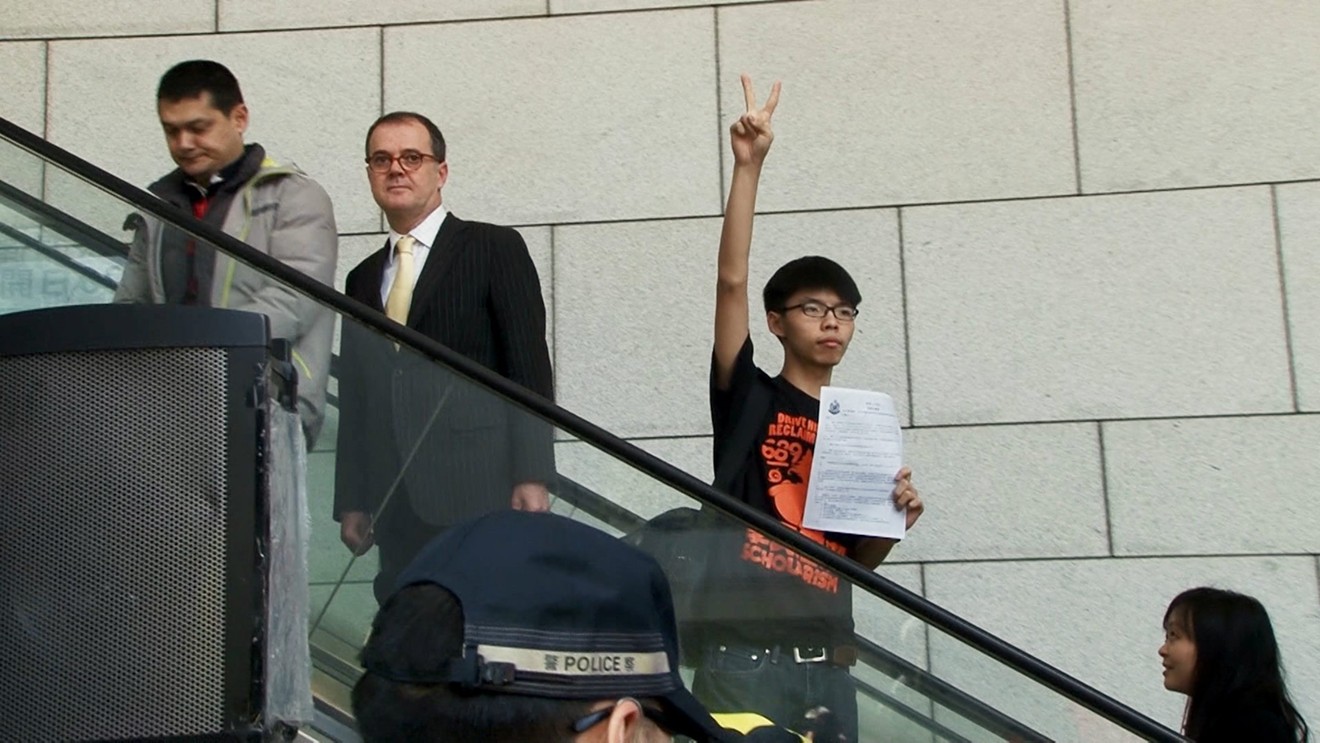“I can’t ensure I will not be disappeared in the future,” Joshua Wong says, deep into Joshua: Teenager vs. Superpower, Joe Piscatella’s rousing, terrifying thriller of a documentary. He says it a little distractedly, as though his own life is an afterthought when considered against the scope of his movement.
Wong emerged as an activist leader in Hong Kong at age 13, when he and his teen-driven Scholarism group seized a square in the city’s Central district to protest the imposition of China’s education system on Hong Kong’s children. As late as the early 2010s, China still purported to be allowing the city, a British colony until 1997, greater freedom than the rest of the country. In crisp English, Wong contradicts this notion, telling us how watching an impoverished family remain poor convinced him that he must work to better the world. “Just trying to pray for them would not bring change,” he says. “It’s necessary for us to change by action.”
As interviewees describe him as Joan of Arc and a David facing Goliath, we glimpse both the drudgery and the reward of Wong’s activism. After scenes of Wong leafleting in the streets, calmly addressing citizens via a personal loudspeaker (“Defend freedom of thought. Oppose brainwashing education”) and getting treated like a dopey kid by city officials appointed by Beijing, Joshua builds to an early, decisive victory.
But there’s lots of film to go – and more encroachments to fight. The second half concerns a larger, more fraught occupation: the spontaneous Umbrella Revolution of 2014, when thousands took to the streets of Hong Kong to demand, among other democratic measures, universal suffrage when selecting the city’s chief executive. That footage is heartening, of course; but over months of occupation, the movement suffered from malaise and infighting and eventually was routed by police.
Piscatella’s doc is more focused on Wong’s determined hopefulness than on specifics. Wong’s parents insist to the camera that they don’t want to be famous, but his mother can’t help but gush about Scholarism’s early triumph: “They says it’s the first social movement to achieve its goal since the handover in 1997.” Piscatella’s film works hard to suggest that maybe, one day, if kids like Wong can persist without being jailed or killed, there might be a second.
[
{
"name": "Air - MediumRectangle - Inline Content - Mobile Display Size",
"component": "18855504",
"insertPoint": "2",
"requiredCountToDisplay": "2"
},{
"name": "Editor Picks",
"component": "17105533",
"insertPoint": "4",
"requiredCountToDisplay": "1"
},{
"name": "Inline Links",
"component": "18349797",
"insertPoint": "8th",
"startingPoint": 8,
"requiredCountToDisplay": "7",
"maxInsertions": 25
},{
"name": "Air - MediumRectangle - Combo - Inline Content",
"component": "17105532",
"insertPoint": "8th",
"startingPoint": 8,
"requiredCountToDisplay": "7",
"maxInsertions": 25
},{
"name": "Inline Links",
"component": "18349797",
"insertPoint": "8th",
"startingPoint": 12,
"requiredCountToDisplay": "11",
"maxInsertions": 25
},{
"name": "Air - Leaderboard Tower - Combo - Inline Content",
"component": "17105535",
"insertPoint": "8th",
"startingPoint": 12,
"requiredCountToDisplay": "11",
"maxInsertions": 25
}
]












